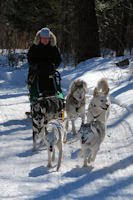
Food Recalls
More Aflatoxin-Related Dog Food Recalls Revealed
by News Desk | Dec 29, 2011
The U.S. Food and Drug Administration posted two dog food recall notices on its website Wednesday, including one dated Dec. 12 and an "updated" alert dated Dec. 14, more than two weeks ago.
Both recalls of dry dog food were the result of elevated levels of aflatoxin, caused by fungus on grains such as corn that in significant quantities can cause liver damage in pets. These recalls are apparently related to the Dec. 7 announcement by manufacturer Cargill Animal Nutrition that it was pulling dry dog food off the market because of excess amounts of aflatoxin.
Aflatoxin, which cannot exceed 20 parts per billion under FDA standards, has been found in levels above that in dog food produced at Cargill's plant in LeCompte, LA and in Iams puppy food manufactured by Proctor and Gamble in Henderson, N.C. Advanced Animal Nutrition recalled its Dog Power food, also for elevated aflatoxins.
All the companies have said that, to date, no illnesses or adverse affects have been reported in connection with the recalled dog food, but did not explain why dog food was on the market for more than a year before it was tested for aflatoxins.
O'Neal's Feeders Supply of DeRidder, LA, said it has recalled dry Arrow Brand dog food manufactured over an entire year -- between Dec. 1, 2010, and Dec. 1, 2011 -- because it contains corn detected to have higher than acceptable levels of aflatoxin.
O'Neals said the recall applies only to dog food distributed in Louisiana and Texas with packaging date codes lot numbers 4K0341 through 4K0365 and 04K1001 through 4K1325.
It said retailers have already been instructed to remove the following affected brands and products from store shelves:
-- ARROWBRAND 21% Dog Chunks SKU #807 40 lb. bag
-- ARROWBRAND Super Proeaux Dog Food SKU #812 40 lb. bag
-- ARROWBRAND Professional Formula Dog Food SKU #814 50 lb. bag
Consumers may return the recalled dog food - in opened or unopened packages - to the place of purchase for a full refund. For more information contact 800-256-2769 between 9 a.m. and 5 p.m. Monday through Friday.
Petrus Feed and Seed Stores, in what was described as an updated alert, said it has recalled its dry dog food - 21% Protein Dog Food in 40 lb Petrus Feed bags because the product was manufactured with corn that tested above acceptable levels for aflatoxin.
The company said the affected products were manufactured by Cargill in LeCompte, LA between Dec. 1, 2010 and Dec. 1, 2011.
The recall is only for 21% Dog Food, packaged in 40 lb. Petrus Feed bags, with the packaging date codes (lot numbers) 4K1011 through 4K1307. Updated lot numbers are 4K1011 through 4K1335. The affected dry dog food was distributed in Petrus Feed and Seed in Alexandria, LA.
Consumers may return the recalled dog food - whether in opened or unopened packages - to their place of purchase for a full refund. For more information contact 318-443-2259, Monday through Friday, 7:30 a.m. to 5:30 p.m., and Saturday, 7:30 a.m. to 1 p.m.
Both companies advised that pets that have consumed any of the recalled products and exhibit symptoms of illness including sluggishness or lethargy combined with a reluctance to eat, vomiting, yellowish tint to the eyes or gums, or diarrhea should be seen by a veterinarian.












